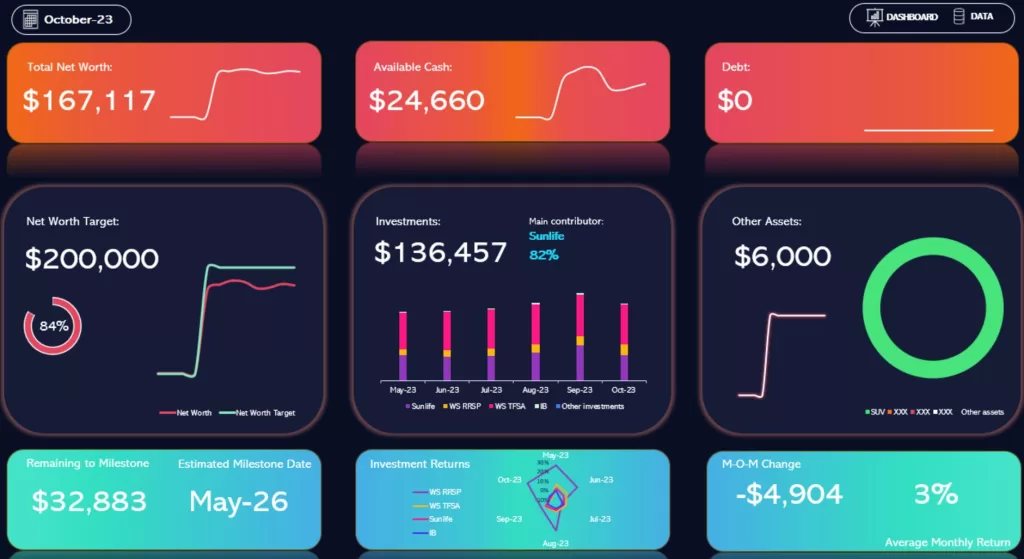A healthy financial equilibrium in today’s fast-paced world is essential for a happy and healthy existence. The practice of financial awareness might help you find that happy medium. Financial mindfulness involves more than simply budgeting and saving; instead, it’s about being more in tune with your feelings and experiences with money to make more informed choices.
In this article, we’ll discuss what financial mindfulness is, why it’s essential, and how you can start practicing it now to live a more financially stable and satisfying life.
Understanding Financial Mindfulness
The term financial mindfulness refers to an integrative strategy for handling one’s financial affairs that draws inspiration from the practice of mindfulness. It entails being aware of your feelings, thoughts, and assumptions regarding money and then utilizing that knowledge to guide your decisions.
The principles of mindfulness meditation, which stress acceptance in the present moment, inspire this idea. It involves looking at your financial condition objectively, without judgment, blame, or worry. Instead, you take stock of your financial situation and make deliberate changes to better it.
Why Financial Mindfulness Matters
Reduces Stress and Anxiety
Concern about money is a significant contributor to stress and psychological problems. Mindfulness may help you deal with stress because it lets you look at your financial position with clear eyes and a level head.
Enhances Decision-Making
By training your attention on the here and now, mindfulness helps you avoid making snap judgments. To achieve your financial objectives in the long run, you should think carefully before making any hasty purchases or investments.
Improves Financial Habits
Knowing what you believe and how you act financially might help you pinpoint where you can make changes. Changes in your habits of spending, saving, and investing might result from this realization.
Fosters Gratitude
Being more present in your relationship with money might help you be grateful for what you have rather than always wanting more. As a result, you could feel happier about your financial status.
Practicing Financial Mindfulness
Now that we understand the significance of financial mindfulness let’s explore how to incorporate it into your life:
Budget Mindfully
Make a spending plan consistent with your beliefs and objectives. Instead of seeing it as a limiting mechanism, think of it as a means to distribute your resources consciously. Keep careful tabs on your spending and evaluate your budget often to avoid going over.
Practice Daily Check-Ins
Put aside some time every day to assess your financial standing. Checking your recent transactions, keeping tabs on your financial objectives, or just recognizing your concerns are all excellent ways to do this.
Mindful Spending
It’s important to examine your motivations for purchasing before actually doing so. Is it an absolute requirement or more of a want? Stopping for a moment like this will help you think more carefully about your purchases and curb any impulsive buys.
Embrace Gratitude
Create a routine of being grateful for your possessions. Be thankful regularly for the things that help you financially, such as a good job, a lovely house, and good friends and family. This method has been shown to lessen the constant need for more.
Set Financial Goals
Set values-driven but realistic financial objectives. Whether for a trip, to eliminate debt, or to save for retirement, having clear goals can help you make better financial choices.
Practice Mindful Saving
Think about setting up an automatic savings and investing plan. By setting aside a regular percentage of your earnings, you may lessen the likelihood of giving in to spending temptations.
Dealing with Financial Stress
Financial stress may be managed using mindfulness practices, including deep breathing, meditation, and writing. Don’t try to avoid dealing with your economic issues; instead, approach them with a level head.
Avoid Comparisons
In this era of social media, it’s simple to compare one’s financial condition to that of others. Keep in mind that everyone has a different path to financial success. Avoid the trap of comparison by focusing your attention on your development.
Learn and Educate
Be proactive in your pursuit of financial literacy. Learn about personal finance via books, seminars, and advisors. The more you learn, the more prepared you will be to handle your finances.
Seek Professional Help
Feel free to see a therapist or financial expert if you need assistance with managing your money. They will be able to provide you with advice and service that is suited to your individual needs.
Overcoming Challenges
Practicing financial mindfulness may not always be easy. Here are some common challenges and tips to overcome them:
Resistance to Change
Changing one’s spending habits, in particular, may be challenging. Begin with baby steps and build mindfulness into your everyday financial life.
Emotional Triggers
Strong emotions might be triggered by making a financial choice. Care to center yourself before responding when presented with such intense feelings. Let yourself feel the feelings without trying to control them.
Lack of Time
There are a lot of people who claim they can’t afford to be careful with their money. Daily investment, however, may provide significant results over time. Prioritize your ability to retire comfortably.
Impulsive Behavior
Spending or investing on the spur of the moment often backfires. Avoid giving in to impulse buys by blocking access to your credit cards and opting out of promotional communications.
Conclusion
Financial awareness may help you balance your money. By applying mindfulness to your finances, you may minimize stress, make better choices, and have a happier, more secure life. Financial awareness is a process, not a goal. Being present with your finances, learning and growing, and improving your money connection is critical. When you practice financial mindfulness, your financial well-being and quality of life increase. Start now, take a deep breath, and start your financial journey toward balance and mindfulness.






